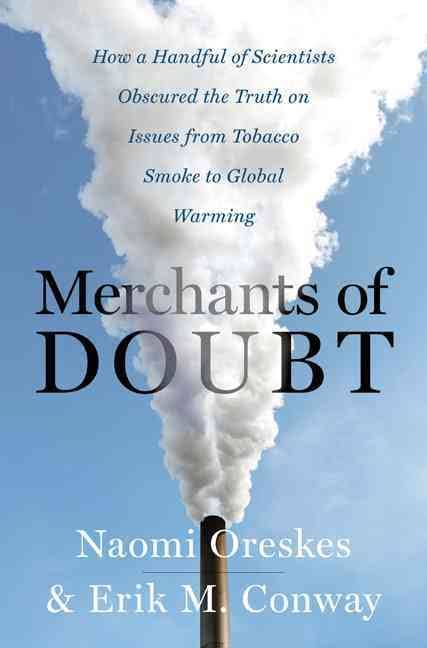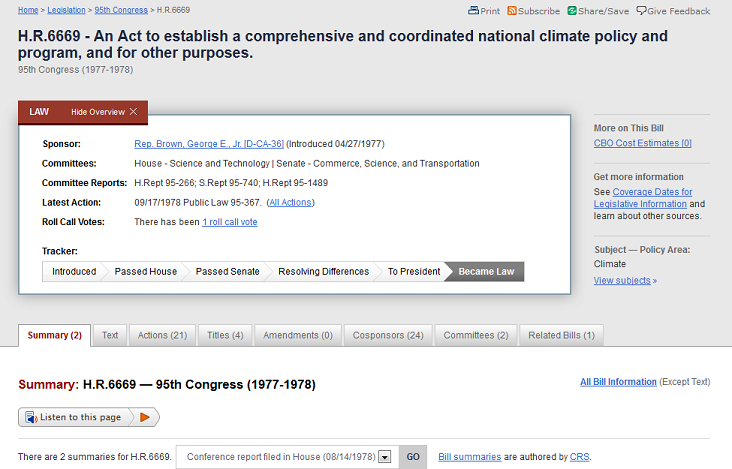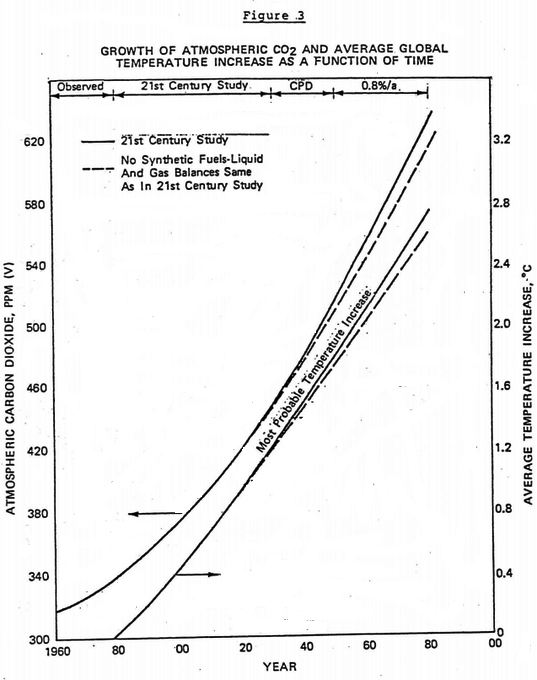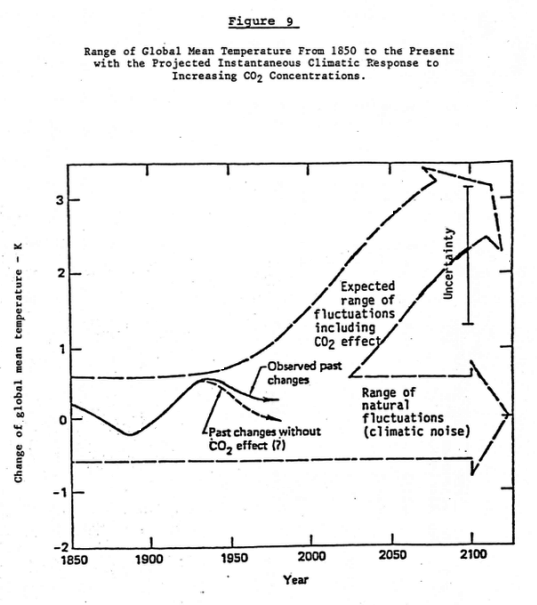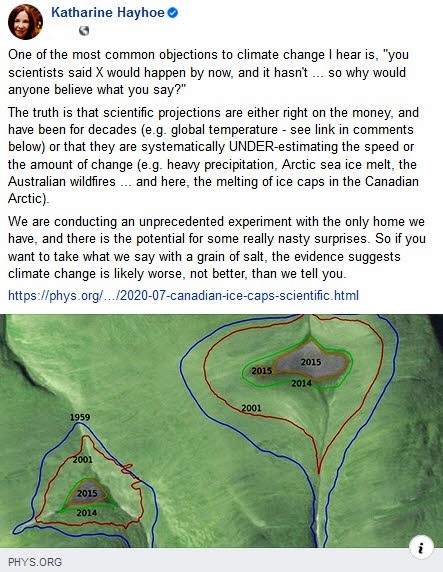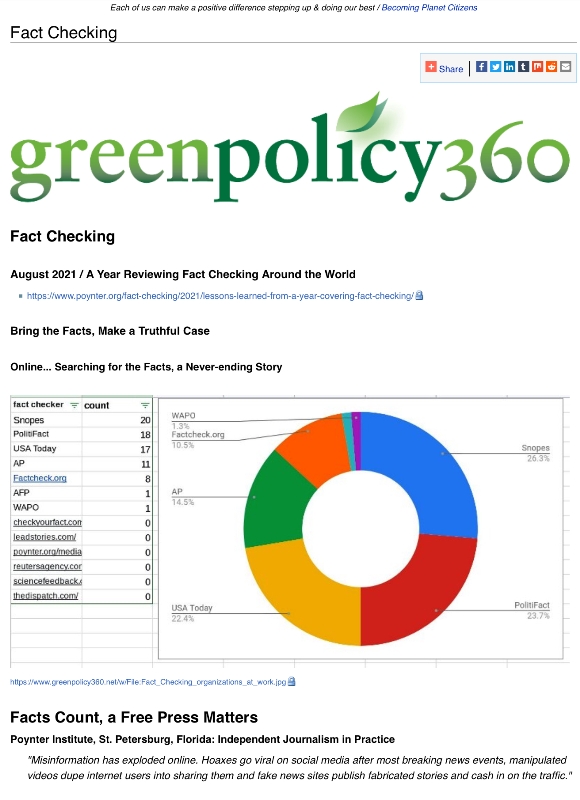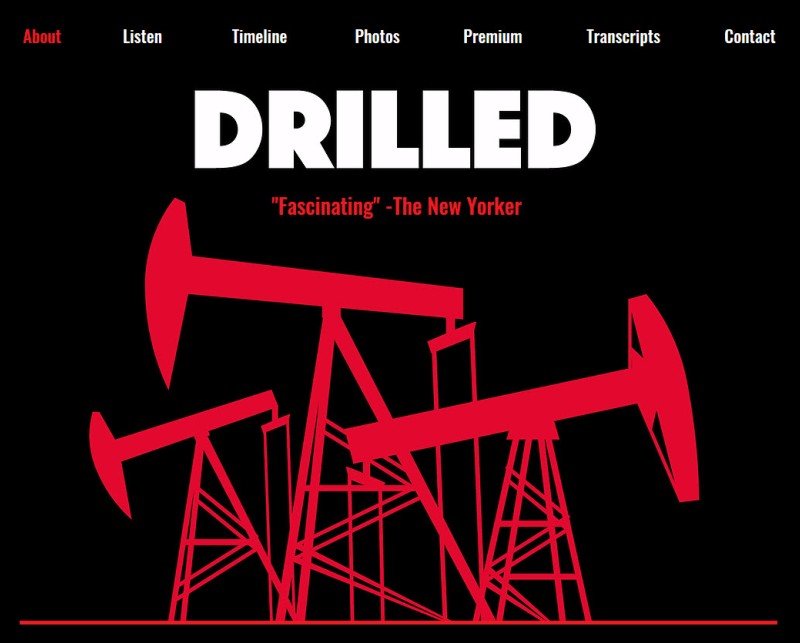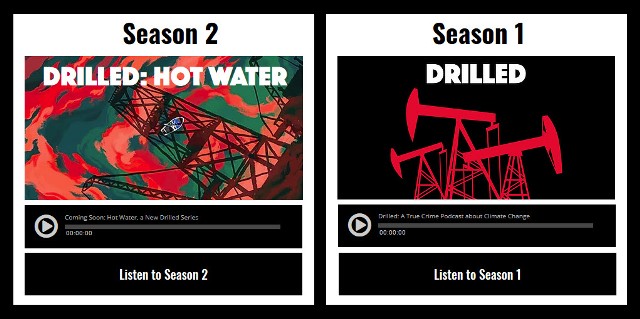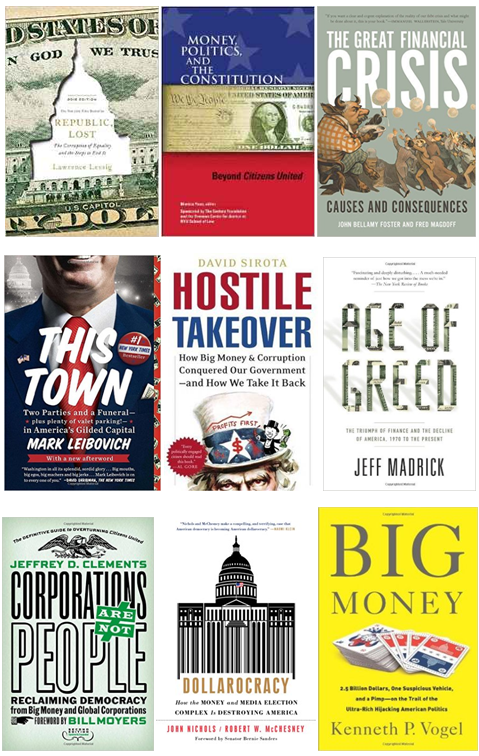Merchants of Doubt
More from Naomi Oreskes (2023)
The Big Myth
More on Naomi Oreskes
Naomi Oreskes, a historian of science at Harvard University, has a study of the environmental movement's origins with a focus on climate change. The trove of new documentation Professor Oreskes is bringing to light adds needed revelations to the beginnings of the modern environmental era. Representative George Brown, we can say with certainty, would be smiling if he were here to read these stories.
>In 2000, Naomi Oreskes, a geologist by training, was working at the Scripps Institute for Oceanography in San Diego, an organization with a long history of climate change research.
>"All the scientists around me spoke about climate change as if it were a settled matter. Proven scientifically. Manmade," recalls Oreskes, a renowned Harvard professor specializing in the history of science. "Yet I noticed that in the media, the issue was reported as if there were a big debate over whether it was even real. That contrast led me to the work I published in 2004."
>Oreskes, whom The New York Times has called "one of the biggest names in climate science," did what any interested party could have done then, but didn't. She counted the scientific papers on climate change — 928 at the time — and determined that not one disagreed: all found that climate change was real, underway and manmade. She exploded the myth that any debate existed.
- https://thebulletin.org/2024/08/interview-science-historian-naomi-oreskes-schools-the-supreme-court-on-climate-change/ ... 1969 on... and the US Supreme Court
- ·························································································
Merchants of Doubt Ply Their Trade, Paid to Spin the Facts
Published June 2010
"It's not an argument about the science. It's an argument about governance. And how much the government should intervene to protect us from dangers — like dangerous products or the danger of climate change. It's an argument about regulation. And these people's answer is that the government shouldn't — that we're on our own — that it's up to us to protect ourselves. And if fossil fuels are destroying the climate — well that's the cost of doing business. Oh, well.
So it's a slippery slope argument. If we accept the science and we acknowledge that we have to do something about greenhouse gases. Well that opens the floodgates to regulations of all kinds. It's the slippery slope to socialism. It's communism by the back door."
-— Naomi Oreskes
"It's not an argument about the science. It's an argument about governance. And how much the government should intervene to protect us from dangers — like dangerous products or the danger of climate change. It's an argument about regulation. And these people's answer is that the government shouldn't — that we're on our own — that it's up to us to protect ourselves. And if fossil fuels are destroying the climate — well that's the cost of doing business. Oh, well."
"So it's a slippery slope argument. If we accept the science and we acknowledge that we have to do something about greenhouse gases. Well that opens the floodgates to regulations of all kinds." -- Naomi Oreskes
In her book, Merchants of Doubt, (which has also been turned into a documentary) Naomi Oreskes traces the people behind what has become a global industry of climate change denial. Almost 50 years ago, she says, we heard about how the earth was going to be affected by pollution, hence, climate change...
By the 1970's, climate studies (and first National Climate Act in the U.S.) were piling up around the globe. By the mid-80's, Jim Hansen and his team at NASA concluded in peer review journals, climate change was already underway. By 1988, major media headlines announced, "global warming has begun."
Governments began taking action. Naomi Oreskes says, at that very moment, as scientific consensus emerged, so did a heavily funded and politically motivated campaign to cast doubt on that consensus.
1978 - 'Government Began Taking Climate Action'
- First National Climate Act, Historic Work
GreenPolicy360 Siterunner / SJS: The beginnings of modern environmental and climate science can be traced to the 1960s and 1970s. The U.S. National Academy of Sciences played a key role in laying a foundation of scientific reports and data.
Energy and Climate Report, 1977, National Academy of Sciences / 175 pp. / PDF via GreenPolicy360
Back to the beginnings of climate science, let us look at the work of Congressman George E. Brown and the new Office of Science and Technology Policy - 1977 ...
Representative George Brown (Calif) took the 1977 Energy and Climate Report from the Academy of Sciences and made it actionable. In a historic moment, he proposed and drafted the legislation of the first U.S. National Climate Program and shepherded its passage in 1978.
This first federal program established to study and assess scientifically the issues and risks of human-caused climate change became a foundation for comprehensive initiatives, with an array of new Earth Science missions led by NASA and NOAA, the EPA and USGS.
···············································
Historic Climate Studies
- Oil/Gas Industry Response
How did the industry respond? Let's look at what the fossil fuels industry, in the case of ExxonMobil, chose in how to respond... by choosing not to reveal the dangers that science was presenting...
In 1982, in a climate science study that was not released to the public, ExxonMobil predicted that by 2019 the Earth's atmospheric CO2 level would reach about 415 parts per million, raising the global temperature roughly 0.9 degrees C.
In fact, the world crossed the 415 ppm threshold in 2019 and broke 0.9 degrees C in 2017.
Read More:
Exxon: The Road Not Taken
After eight months of investigation, InsideClimate News presented this history of Exxon’s engagement with the emerging science of climate change. The story spans four decades, and is based on primary sources including internal company files never before seen, interviews with former company employees, and other evidence.
It describes how Exxon conducted cutting-edge climate research decades ago and then pivoted to work at the forefront of climate denial, manufacturing doubt about the scientific consensus that its own scientists had confirmed.
○
A Global Battle between Climate Science and Climate Science Deniers
An existential struggle, life on earth at stake
'Losing Earth' Explores How Oil Industry Played Politics With The Planet's Fate
Climate change is often thought of as a partisan issue in the United States, but New York Times journalist Nathaniel Rich says that wasn't always the case.
Rich says that from 1979 until 1989, climate change was viewed as a bipartisan problem — then the the oil industry "descended and bared its fangs" and everything changed.
Via Fresh Air - NPR
In his new book, Losing Earth, Rich writes that in the late 1980s, the American Petroleum Institute began paying scientists to write op-eds questioning climate science. He describes the effort as a campaign to "sow propaganda [and] disinformation, to buy off politicians and scientists, and, ultimately, to convert an entire political party to denialism."
Rich says the campaign paid off. No longer was climate science accepted as fact: "All of a sudden," he says, "you have a number of pieces that start to appear that say maybe there's not scientific consensus about this problem."
As a result, the Republican party began to shift its stance on climate change: "It's become a starkly partisan issue," Rich says. "And it seems like we are much further from a solution than we were 30 years ago..."
"Losing Earth" ... How the Oil Industry Played Politics With The Planet's Fate
Transcript of the Interview by Terry Gross with Nathaniel Rich
···································································································
Climate of Deception: How Viral Misinformation Fuels the Climate Emergency
- https://www.greenpolicy360.net/w/Merchants_of_Doubt | Merchants of Doubt
- https://www.greenpolicy360.net/w/File:Science_denial_graph.jpg | Techniques of Science Denial (Graph)
- https://www.greenpolicy360.net/w/File:FLICC_techniques_of_science_denial.png | Techniques of Science Denial (Video)
- http://www.nature.com/news/wikipedia-shapes-language-in-science-papers-1.22656 | Wiki Community Science
····································································································
Facts About the 'Disinformation Playbook'
How to Stop Disinformation
Countering Disinformation in Your Community - (PDF)
Is Disinformation the Same as Misinformation?
What You Can Do to Stop Disinformation
How Business Interests Deceive, Misinform, and Buy Influence at the Expense of Public Health and Safety
Here are five of the most widely used “plays” and some of the many cases where they have been used to block regulations or minimize corporate liability, often with frightening effectiveness—and disastrous repercussions on public health and safety.
1) The Fake
Conduct counterfeit science and try to pass it off as legitimate research
2) The Blitz
Harass scientists who speak out with results or views inconvenient for industry
3) The Diversion
Manufacture uncertainty about science where little or none exists
4) The Screen
Buy credibility through alliances with academia or professional societies
5) The Fix
Manipulate government officials or processes to inappropriately influence policy
GreenPolicy360: Without needing to be fact checked, the following statement of fact is asserted:
There is, in this current media and internet environment, a tsunami of dis- and mis-information washing through, over and around us.
To extend this thought, we, i.e. GreenPolicy360, and our terrestrial neighbors here in St. Pete/Clearwater, the Poynter Institute (founders of PolitiFact and the International Fact Checking Network), are, in fact, continuing to do our best to hew to the facts and sort out what's factual and what isn't as we make our way through a contemporary flood of political (and too often purposeful) mis- and dis-info. It's time to urge all to consider, seriously consider, the need for a course correction, as much as is possible, yes?
Good data and accurate facts, measuring and monitoring, and sound science are the way to go -- if one expects to get to where one is intending to go.
·······························································
Drilled - Website
Drilled - Podcasts
Three Seasons | 31 Episodes | 2018 - 2020
The Madmen of Climate Denial
Drilled: A True Crime Podcast about Climate Change
Drilled is a limited series investigative true-crime podcast about the crime of the century: the creation of climate denial.
·····································
Money in Politics
- Exaggeration, Misinformation, PoliticoPay
"They are going to take your Hamburgers away...."
································································································
Political Spin, Disinformation / Misinformation, Social Media Bots, Operatives & 'Oppo Politics'
Global Warming or Climate Change?
Who is Frank Luntz?
Luntz is famous for a 2002 memo to George W. Bush telling Republicans how to talk their way around environmental issues. The advice, talking points for the party, contains this passage:
"Voters believe that there is no consensus about global warming within the scientific community. Should the public come to believe that the scientific issues are settled, their views about global warming will change accordingly. Therefore, you need to continue to make the lack of scientific certainty a primary issue in the debate."
Since then the term 'climate change' has grown in political debate and common usage.
The focus group testing of understanding (and misunderstanding) and emotional (versus disengaged reactions) were a Luntz provided political tactic to slow and block climate action.
"We found that the term global warming is associated with greater public understanding, emotional engagement, and support for personal and national action than the term climate change."
"For example, the term global warming is associated with greater certainty that the phenomenon is happening, especially among men, Generation X (31-48), and liberals. "
In The Guardian, Susan Goldenberg summed up the results of the Luntz survey and his deep involvement in the Republican Party:
George W Bush swapped the term climate change for global warming in 2002 on advice of Republican political consultant, Frank Luntz.
In the secret memo before the mid-term elections, Luntz warned that Republicans – and Bush in particular – were singularly weak on the environment. He advised a Republican party strategy of disputing climate science, and of avoiding the term "global warming' because of its highly negative connotations.
“It's time for us to start talking about 'climate change' instead of global warming … 'climate change' is less frightening than 'global warming',” said the memo obtained by the Environmental Working Group.
The word confusion stuck. Luntz' work carried on...
This is telling. The term climate change was pushed by politicians who didn’t want Americans to demand action.
Update: August 2019
Luntz: ‘I was wrong’ on climate change
Politico
Frank Luntz, a veteran Republican pollster, disavowed work in the early 2000s to cast doubt on the science behind climate change...
He has changed his position and now says America, on the whole, wants the federal government to "do more, right now, to address it."
"I was wrong in 2001," Luntz told an ad-hoc Senate Democratic climate panel. "I don't want credit. I don't want blame. Just stop using something that I wrote 18 years ago because it's not accurate today."
We are left with the consequences of Luntz, his focus groups and politico word spin. His for-hire word play has ongoing real-worl impact...
>Republican political strategist Frank Luntz in a controversial memo advised conservative politicians on communicating about the environment:
>It’s time for us to start talking about “climate change” instead of global warming and “conservation” instead of preservation.
>“Climate change” is less frightening than “global warming”. As one focus group participant noted, climate change “sounds like you’re going from Pittsburgh to Fort Lauderdale.” While global warming has catastrophic connotations attached to it, climate change suggests a more controllable and less emotional challenge.
···············································································
Step Up and Lean In: Politics is Tough
Naomi Oreskes and Erik Conway Say Watch Out for the Dis/Misinfo
Merchants of Doubt -- Documentary Trailers
• https://www.youtube.com/watch?v=j8ii9zGFDtc
• https://www.youtube.com/watch?v=zmMP9hXxIo0
• https://www.youtube.com/watch?v=pRenGy0cg5s
• https://en.wikipedia.org/wiki/Merchants_of_Doubt
• http://merchantsofdoubt.org/
More on the Progress and Setbacks of Climate Action @GreenPolicy360
GreenPolicy360 & Science
- https://www.greenpolicy360.net/w/File:Good_science_needs_good_data_.png | GreenPolicy360, Facts & Data
- https://www.greenpolicy360.net/w/Stats_-_Green_Research_%26_Science | GreenPolicy360, Our Policy on Science
- https://www.greenpolicy360.net/w/Climate_Change_-_Global_Warming_Keyword-Terms | Global Climate Keywords
- https://www.greenpolicy360.net/w/File:You_can_manage_only_what_you_can_measure_Dr_David_Crisp,_OCO-2,_June_2014_m.jpg | Measure-to-Manage
- https://www.greenpolicy360.net/w/Merchants_of_Doubt | Merchants of Doubt
- https://www.greenpolicy360.net/w/File:Science_denial_graph.jpg | Techniques of Science Denial (Graph)
- https://www.greenpolicy360.net/w/File:FLICC_techniques_of_science_denial.png | Techniques of Science Denial (Video)
- http://www.nature.com/news/wikipedia-shapes-language-in-science-papers-1.22656 | Wiki Community Science
Environmental-Climate Deregulations (U.S.)
- https://eelp.law.harvard.edu/2018/07/tracking-the-trackers/ | A List of Organizations Tracking US Environmental 2016-2020 Rollbacks
- https://www.brookings.edu/interactives/tracking-deregulation-in-the-trump-era/ | Brookings - Deregulatory Tracker
- https://www.brookings.edu/blog/up-front/2020/12/15/the-trump-administrations-major-environmental-deregulations/ | Brookings on Trump's Environmental Deregulation Record
- https://www.greenpolicy360.net/w/Category:Environmental_Laws | Category - Environmental Laws
- https://www.greenpolicy360.net/w/File:Climate_Change_Litigation_Databases_Climate_Law.png | Climate Litigation Database
- http://columbiaclimatelaw.com/resources/climate-deregulation-tracker | Climate Deregulation Tracker
- http://blogs.law.columbia.edu/climatechange/ | Columbia Law School - Climate Change Laws
- http://columbiaclimatelaw.com/resources/silencing-science-tracker/ | Columbia Law - 'Silencing Science' Tracker
- https://eelp.law.harvard.edu/regulatory-rollback-tracker | Harvard Law - Trump Environmental Law Rollbacks
- https://www.nytimes.com/interactive/2020/climate/trump-environment-rollbacks-list.html | NYT - Trump Environmental Rollbacks
~
